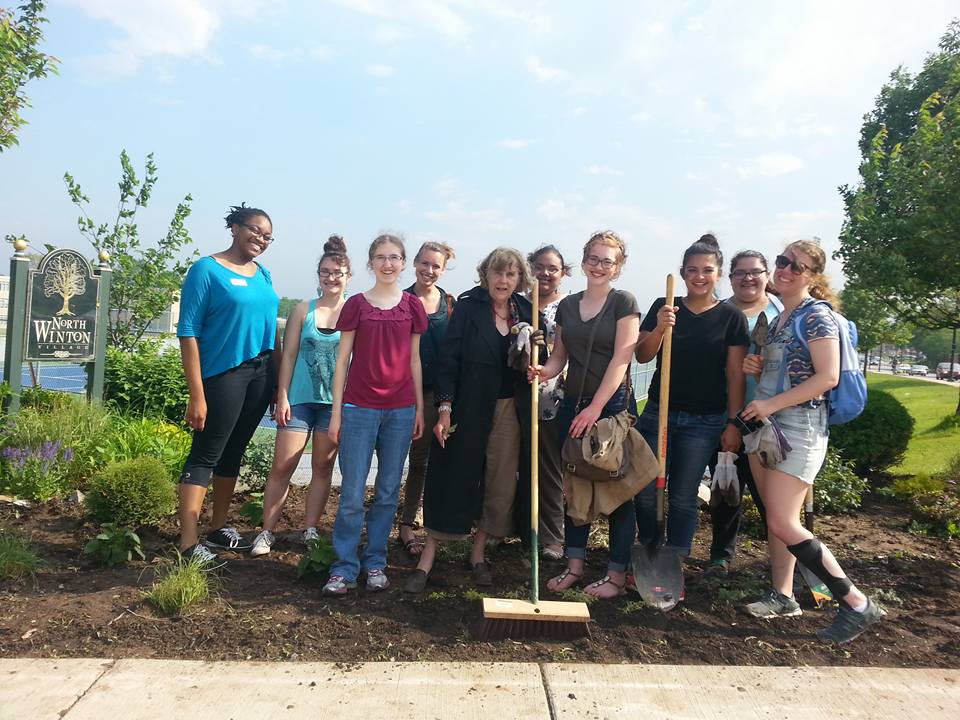As I set out for a semester abroad, my summer has officially come to an end. But oh, what a wonderful summer it was—full to the brim with engaging learning opportunities, an incredible internship, and countless adventures. I couldn’t have asked for a better three months, and I have Rochester’s Urban Fellows program to thank for it all.
Urban Fellows was established in 2002 with only a handful of students, but has since flourished into one of the Rochester Center for Community Leadership’s premier programs, with competitive admittance and a respectable reputation. Designed to help students become more civically engaged in their community and knowledgeable about urban issues, the program pairs each fellow with a local non-profit organization for a ten-week internship (read about mine here). Additionally, the fellows (all either from Rochester originally or currently enrolled at a Rochester-area college) attend weekly urban issues seminars and go on various field trips around the city. At the end of the program, each fellow designs a poster about their experience and presents it at City Hall.
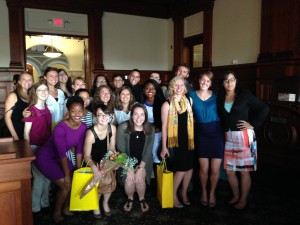
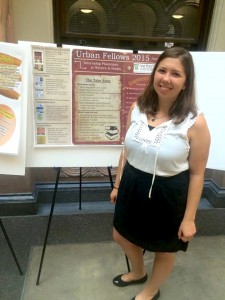
Partnered with the AmeriCorps VISTA (Volunteers in Service to America) program, Urban Fellows welcomed twenty-one students to their ranks this summer, and I was lucky enough to count myself among them.
Starting in late May, we spent two-and-a-half months learning about everything from community organizing and urban education to historical social movements in Rochester and urban crime and justice. We had discussions with professors from the University of Rochester, Rochester Institute of Technology, and St. John Fisher College. We toured the Susan B. Anthony house, had a peace circle at the Gandhi Institute, played with kids at the Boys & Girls Club, and attended a Reshaping Rochester lecture at Gleason Works. We dined at local favorites like Nick Tahou’s Hots and Aladdin’s Natural Eatery as well as hidden gems like the Arnett Café and Taste of Ethiopia. We shared our common triumphs and struggles at our respective internships. And we grew very close as a group, bonding both during and outside our scheduled sessions.
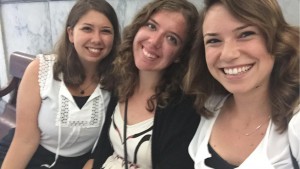
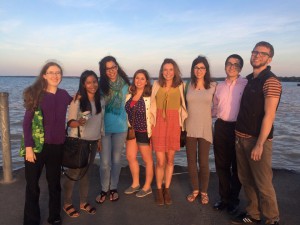
I cannot speak highly enough of this program and I feel so very fortunate to have participated in it. Looking back, here are a few of the most important things it taught me:
1. Getting involved in the community is not only incredibly rewarding, it’s also easy.
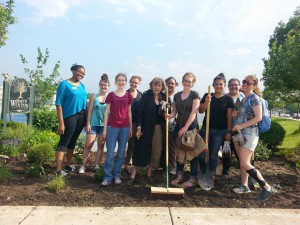
Growing up, I was always very active in my community and continue to be whenever I spend time back in my hometown. Going to community events, volunteering, and being involved with local organizations was a normal part of life but when I moved to the mid-sized city of Rochester from my rural small town, I wasn’t sure if getting involved would be quite so easy. After this summer, I’m happy to say it is, as long as you know where to look. Before Urban Fellows, I tutored at a local elementary school for two hours a week and tried to attended the occasional community event, but this summer really gave me the chance to step up my involvement. I volunteered at two festivals, went to all kinds of events, attended a city council meeting, made strong connections at Writers & Books (the literary center I interned at), met tons of community members, and gained a much more comprehensive understanding of the city. Everywhere I went, people were welcoming and happy to see us getting involved. I finally felt like an active member of my community again and I couldn’t be happier with my new status.
2. I find urban planning and community organizing fascinating.
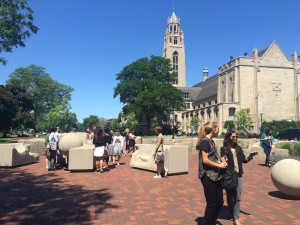
Before Urban Fellows, I’d never really considered how important urban and community planning can be or how much thoughtful planning and research is required to do them effectively. But after touring the inner loop in-fill project, listening to a lecture on public transit systems, and learning about the difference something as simple as converting an empty lot into a park or revamping a walking trail can make, I was hooked. This kind of work calls for careful analysis of community needs based on an understanding of the culture and way of life of those living there—thus, in my eyes, a form of applied anthropology. As an anthropology major with no plans to be a PhD fieldwork-doing anthropologist but with hopes of using my degree, I was thrilled with this discovery.
3. Like any city, Rochester has its problems, but solutions are in the works.
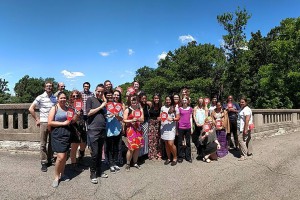
Rochester certainly has its fair share of issues—a struggling public school system, an inefficient transit system, residential segregation, and significant poverty. But for every issue the city faces, there is a dedicated team of citizens working to fix them. Rochester is full of all kinds of non-profits created with the sole purpose of improving the city. In fact, many of them were the very organizations we fellows worked with this summer to improve youth education, make healthy eating and living easier, aid the refugee population, create better neighborhoods, and much more. The local government is also working hard to truly serve their city. This is evident in everything from the inner-loop and midtown projects to the recent funding of police body cameras. Yet, it is not only the people employed in such work that care about Rochester. Everywhere I went this summer, I encountered Rochesterians doing their part to better their communities and bring about a brighter future for their city. Rochester has undeniably had its problems, but I’m convinced that with such strong support for positive change, the city can only improve.
4. My generation cares about community.
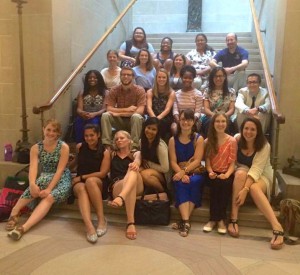
The Urban Fellows program is proof that individuals my age care too. We are willing to spend our entire summer learning about, engaging with, and bettering our community while living off a smallish stipend in hot dorm rooms—and we love it. The fact that far too many students apply to the program than can be admitted is a further indication that civic engagement is a priority for at least a portion of our generation. The students I spent the summer with are nothing short of inspirational with unbelievable work ethic, insightful ideas, and bright futures full of enacting positive change in their communities. So while I can’t say they restored my faith in my peers (because I never really lost it), I can certainly say that the 2015 Urban Fellows reinforced my belief that I am a member of a generation that is bound for greatness.

